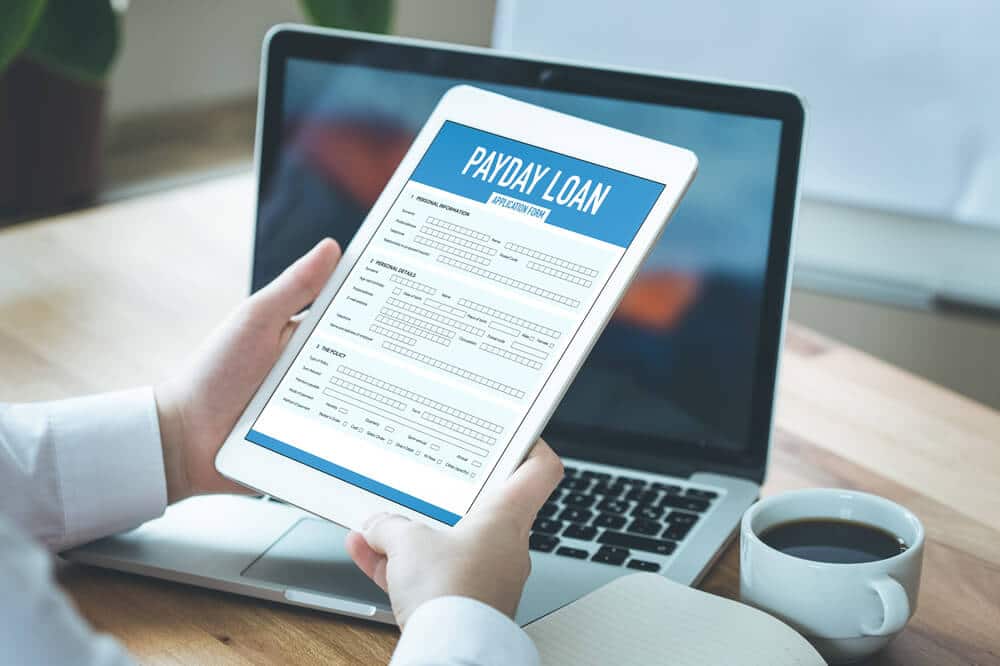We have all found ourselves in a tough spot and need cash to meet our immediate needs. Some people turn to payday loans when they’re in a jam, and it can be a temporary solution to find cash for bills. But, the reality is that the interest and fees will add up quickly.
Because of this, there is a big chance that you won’t be able to repay your loan on schedule and could slip into a cycle of payday loan debt. If these are your circumstances, bankruptcy could be the answer to your financial problems.
What is a Payday Loan?
You can call them cash advances, payday advances, check advances, or whatever you want. No matter what you call them, the basic idea is the same. Payday lenders allow you to borrow a small amount of money, typically $1000 or less. In return, they will ask for your contractual agreement to repay their money on your next payday.
Under this contract, you agree to let the payday lender collect payment by direct access to your checking account or postdated checks. In addition to the amount you borrow, the lender will charge fees and a high-interest rate. Herein lies the problem.
Hidden Dangers in Payday Loans
You might find yourself back at square one if you don’t pay the lender on time. It is possible for the payment to default they do not receive it or deposit does not go through at the agreed time. Without the payment, the lender may ask you to renew your loan or refinance it. This means you will still owe the principal, but pay the original fees and interest. They then reinstated the loan with a new due date and fees. However, if you can’t pay the initial installment, your situation is likely to be the same the second time around.
Many people find themselves in an almost never-ending cycle of borrow-refinance. Because payday lenders calculate interest weekly, biweekly or monthly basis, it may end up being higher than an average annual interest rate. This can increase your overall debt. If you cannot repay the loan, the lender may pass your debt on to a collector. This could make the situation worse and potentially financially damaging.
If you have found yourself in this payday loans cycle, the good news is it could be possible to end the cycle through bankruptcy.
Can Bankruptcy Help End Payday Loans?
There are two types of bankruptcy — Chapter 7 and Chapter 13. Each one handles the discharge of debt differently. In a Chapter 7 bankruptcy, most unsecured debts get discharged at no cost to the person filing bankruptcy. In a Chapter 13 bankruptcy, most unsecured debts and some secured debts get discharged once the person filing bankruptcy finishes making payments on them through a court-structured repayment plan. The repayment plan lasts 3 to 5 years, often giving a longer time to repay debts and, in most cases, at a lower cost than the original debt.
Payday loans areunsecured debt because there is no collateral (debtor’s personal property) securing repayment of the loan. Therefore, payday loans can be included in both Chapter 7 and Chapter 13 bankruptcies and get discharged according to the rules of each type of bankruptcy.
Getting Help Filing Bankruptcy on Payday Loans
If you are tired of being trapped in the payday loan cycle, bankruptcy could help you. But, as noted above, each type of bankruptcy has its certain rules for how certain debts get handled. Plus, other regulations exist, such as governing the timeframe of when debts are incurred before filing bankruptcy. Such rules and regulations may make it difficult for you to understand what’s the best financial decision for you. Therefore, having the help of an experienced bankruptcy attorney could benefit you. The bankruptcy attorney will look at your financial situation and help you navigate the bankruptcy process to give you the best outcome.
Brock & Stout’s bankruptcy attorneys have over 26 years of experience helping clients get financial fresh starts through bankruptcy. If you are struggling financially, contact us for a free evaluation of your financial situation so we can see if we can help you. Let our family help you and your family get off the payday loan cycle and onto the road to financial recovery.

